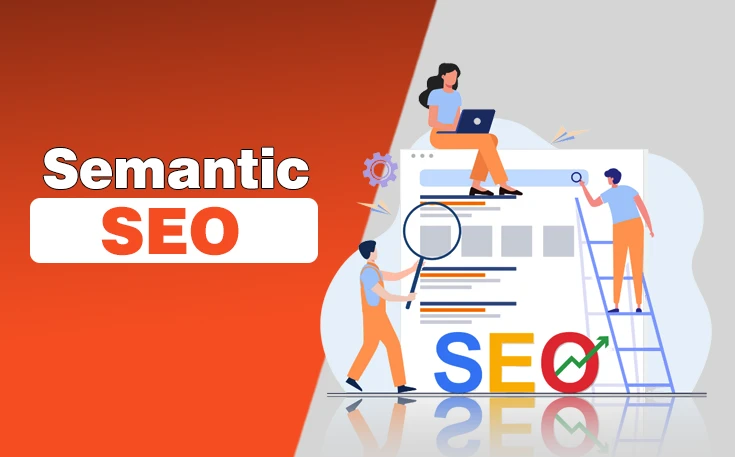Search
People also search for:
LSI Keywords and Semantic SEO: How to Optimize Beyond Exact Match Keywords
LSI Keywords and Semantic SEO: How to Optimize Beyond Exact Match Keywords
- Home
- LSI Keywords and Semantic SEO: How to Optimize Beyond Exact Match Keywords
LSI Keywords and Semantic SEO: How to Optimize Beyond Exact Match Keywords

In the early days of SEO, using exact-match keywords was the primary method of ranking on Google.
If you wanted to rank for “Digital Marketing”, you had to repeat that exact phrase many times in your content.
But things have changed.
Today, search engines like Google are much smarter.
They don’t just look for exact words, they try to understand the meaning behind your content.
That’s where LSI keywords and semantic SEO come in.
What are LSI Keywords?

LSI keywords (Latent Semantic Indexing Keywords) are terms and phrases that are closely related to a main keyword.
They help search engines understand the context and content of a page better.
For example,
- If your main keyword is shoes, your LSI keyword could be: Footwear, Sneakers, Boots, etc.
- If your main keyword is jewellery, your LSI keyword could be:
Ornaments, Accessories, Necklaces, etc.
Why Are LSI Keywords Important?
- Improve SEO and content relevance
- Help rank for more related keywords
- Avoid keyword stuffing
- Make content more natural and user-friendly
- Improve User Experience
What is Semantic SEO?

Semantic SEO is the practice of creating content that focuses on meaning and context, not just exact keywords.
In Simple Terms:
It means writing content that answers what users mean when they search, not just matching the exact words they type.
For Example,
Instead of you only targeting “best running shoes”, semantic SEO includes :
- Comfortable shoes for long runs
- Top brands for marathon shoes
Why is Semantic SEO Important?
Semantic SEO is important because it helps your content rank better and reach the right people.
1. Better Google Understanding – Helps search engines understand your content’s real meaning.
2. Higher Rankings – Google ranks meaningful, in-depth content higher.
3. Matches User Intent – Answers what users want to know.
4. More Traffic – Attracts the right audience to your site.
5. Builds Authority – Shows you’re an expert in your topic.
How to Optimize For LSI Keywords and Semantic SEO:
1. Understand the Topic Well
First, understand what your page is about.
Google looks for context, not just keywords.
So, cover the full topic information.
2. Use Related Keywords (LSI Keywords)
LSI Keywords are words and phrases related to your main keyword.
Example: If your main keyword is “Digital Marketing”, LSI keywords could be: Online marketing, Social Media Marketing.
How to use them:
- Add them naturally to your content.
- Use them in Headings, Subheadings, and image alt text.
3. Answer Related Questions
Think about what people search for related to your topic.
Answer those questions in your content.
Tip: Use tools like “Answer The Public”, “People Also Ask” on Google.
4. Use Structured Content
Create your content with:
- Clear Headings
- Bullet points and lists
- Short Paragraph
- Use main keywords
- Include images, videos
- This helps search engines understand your content better.
5. Write for People First
Make sure your content is helpful, easy to read, and gives value to your audience.
Search engines follow users, so if users love your content, Google will also like it.
Common Mistakes to Avoid in Semantic SEO :
1. Using Only Exact-Match Keywords
2. Ignoring User Intent
3. Not Covering the Full Topic
4. Poor Content Structure
5. Forgetting About Internal Linking
The Future of SEO with AI and Beyond :

The Future of SEO with AI is smarter and more user-focused.
Search engines will understand content more deeply using AI and natural language.
Creating helpful, high-quality content will matter more than just keywords.
Voice search, visual search, and personalized results will grow.
To succeed, focus on user intent, topic depth, and real value.
Some key Future trends of SEO:
- Voice Search growth
- AI and Machine Learning
- Visual and Video Search
- E-E-A-T Focus
- If you want to learn more about SEO and Digital Marketing, then Simba Institute is the best career guidance institute for your future!
Simba Institute:
- This institute is the best option for your digital marketing career.
- In which your career becomes better
- Simba Institute also provides online courses.
- Apart from digital marketing, many other courses are also available at Simba Institute.
Final Thoughts
Optimizing for LSI keywords and semantic SEO helps you go beyond exact match keywords and create content that’s more natural, valuable, and relevant to your audience.
Focus on user intent, write clearly, and use related terms to improve your rankings and connect better with readers.



